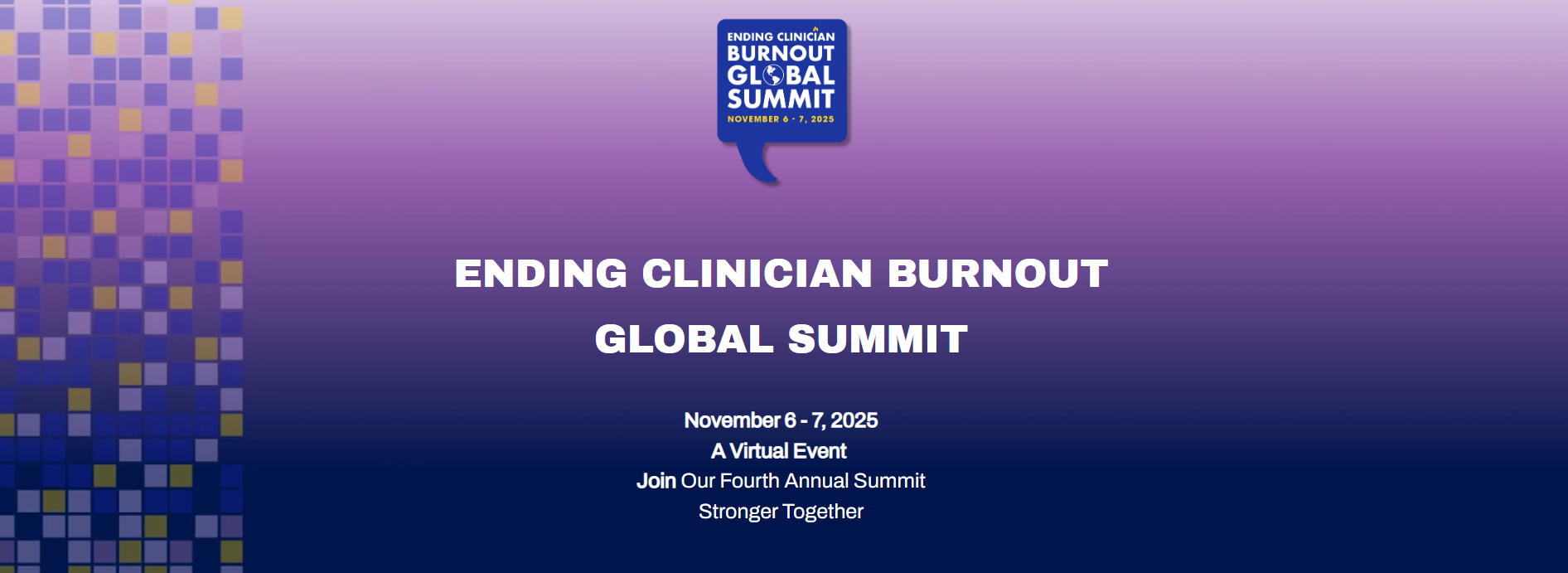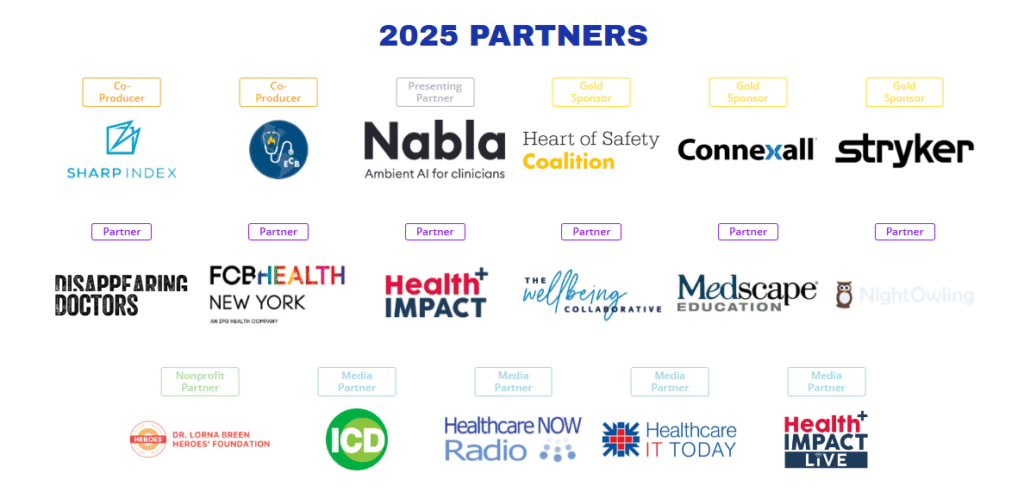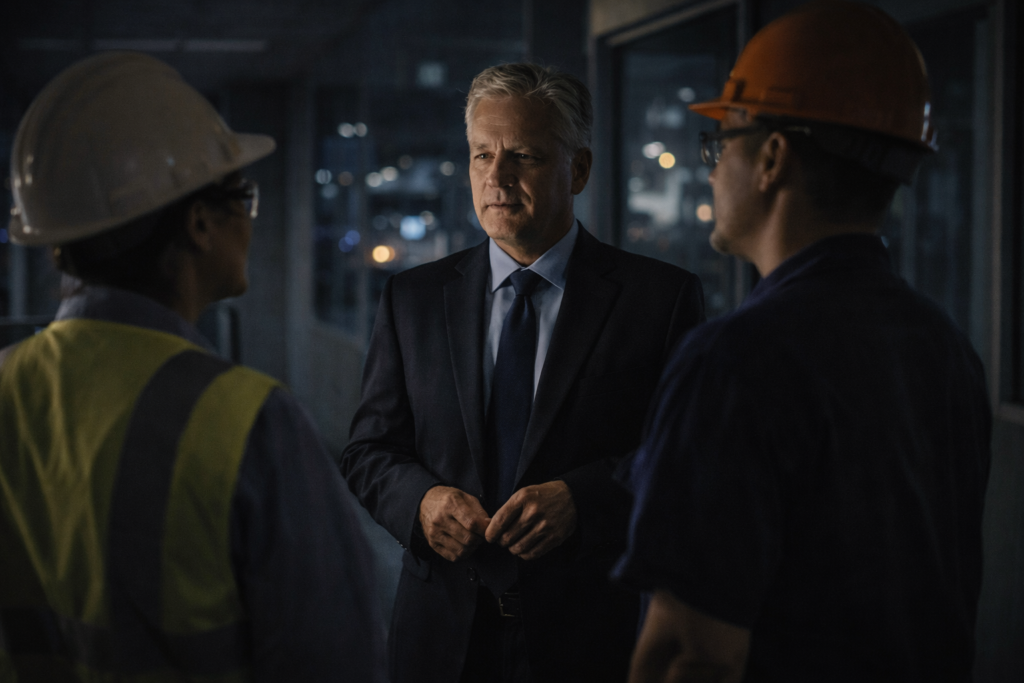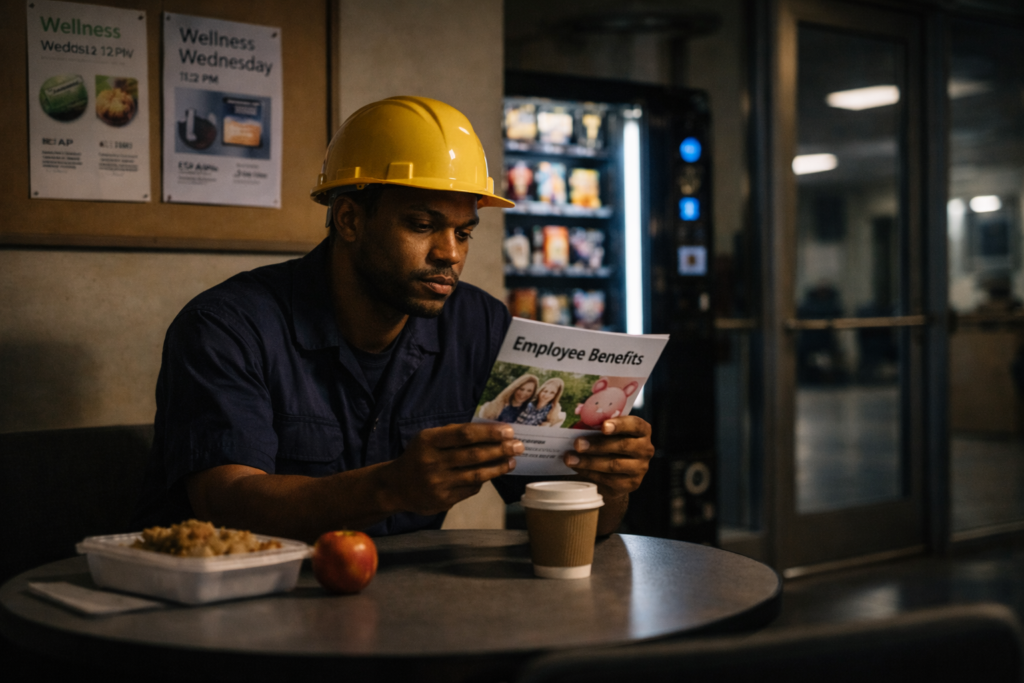Stronger Together with NightOwling at the Ending Clinician Burnout Global Summit
As a summit partner, NightOwling reflects on and recaps insights from the 2025 Ending Clinician Burnout Summit focused on workplace wellbeing.

Two packed days and dozens of voices shared one clear message: ending burnout among clinicians and healthcare workers requires action at two levels. Both systemic and individual levels can take action in policy and leadership, all the way to daily micro habits that protect our energy and attention.
The Fourth Annual Ending Clinician Burnout Global Summit, held virtually on November 6 and 7, 2025, carried the theme “Stronger Together.” As a partner of the event, NightOwling joined an engaged community of clinicians, leaders, researchers, and coaches who share a common goal: not just to reduce burnout, but to reshape healthcare culture so that wellbeing is built in, even for night shift and rotating teams.

Building the Narrative
From the opening remarks through to the closing wrap up, the tone was hopeful yet grounded. There was no sugar coating; burnout remains a persistent threat to both care teams and patients. But the focus stayed on what works, not just inspiration, but action. Panels and workshops spanned leadership accountability, safety culture, workflow redesign, and peer support strategies.
One early highlight was the “you said / we did” concept, a simple but powerful leadership habit. Another was a data slide showing how documentation time cuts into patient care and how small workflow fixes can reclaim hours each week. In a standout session on psychological safety, speakers went beyond definitions to show how to measure it, embed it, and make it visible across shifts. By the final keynote, the message was unmistakable: real progress depends on pairing system change with individual capacity building. The two are not substitutes; they are siblings.
What Stood Out and Why It Matters
Psychological safety as an operating condition. Across several sessions, this theme rose into view. When staff do not feel safe, emotionally or physically, they cannot innovate or raise concerns. The summit showcased frameworks that treat safety as a metric, not a motto.
Equity and leadership matter. Wellbeing is not only about how people feel but about who is heard, supported, and resourced. Leaders who listen and act with transparency build cultures that last.
Reduce friction first, then teach skills. Presenters returned often to this idea. Wellbeing programs only stick when workloads, staffing, and systems give people the time and space to use them.
Micro practices that stick. From 90 second resets to quick peer huddles, the tools were small, evidence based, and realistic, the kind of actions that can happen even on a busy night shift.
Night and irregular shifts amplify both risk and opportunity. While most discussions focused on clinicians broadly, the lessons apply sharply to night teams facing variable staffing, fewer touchpoints, and heightened fatigue. The same systems and behaviors discussed at the summit, such as safety, workflow design, and micro skills, are exactly what can make night work sustainable.
Tools, playbooks, and community. Perhaps the best signal of momentum was that presenters did not just share theories. They shared ready to use playbooks, templates, and resources so others can start implementing tomorrow.
What We Are Taking Forward
The summit reinforced what drives our mission at NightOwling: wellbeing has to be built into the flow of work, not treated as an afterthought. Real change happens when wellbeing and safety are viewed as part of performance, culture, and daily operations, not something extra to make time for later.
We will continue spotlighting and supporting approaches that bring that idea to life.
- Making wellbeing part of everyday routines, not separate programs.
- Encouraging leaders and teams to notice where time, focus, and energy are lost and to address those small friction points that accumulate into stress.
- Translating research and best practices into simple, repeatable actions that work on any schedule, including nights.
These principles shape the partnerships and resources we develop for organizations that want to build healthier and more sustainable systems for their people. The summit was a reminder that wellbeing is not a niche concern; it is a workforce wide necessity.
Gratitude
A sincere thank you to the summit organizers, sponsors, partners, speakers, and community members who continue to advance this work, especially Jonathan Fisher, Kelcey T., and Janae Sharp.
We also want to acknowledge the many professionals whose perspectives and conversations stood out to us, and whose sessions or insights we were able to catch during the summit. These individuals added real depth to the experience: Colin West, Bryan Sexton, Kristine Olson, Al’ai Alvarez, Jen Fisher, Stefanie Simmons, Liz Boehm, Komal Bajaj, Kirsten Olshan, Nicole F. Roberts, Brandon Evans, Sharee Johnson, Chris Griffin, David Parks, Chris Cummings, Shereese Maynard, Richard Safeer, MD, Geoffrey Roche, Dr. Henry Huang, Wm. Jahmal Miller, Amy Comeau, Greg Strodtman, Tina Shah, MD MPH, Daniel Marchalik, MD MBA, Jessi Gold, MD MS, Sachin H. Jain, MD MBA, Farida Nentin, and John La Puma, MD.
We also encourage you to stay connected with the Ending Clinician Burnout Community and follow their ongoing work, events, and shared resources that keep these conversations moving forward. Events like this demonstrate how powerful collaboration can be when the focus is collective wellbeing, connecting science, systems, and real world stories to support healthcare teams at every hour of the day and night. If your organization is exploring ways to strengthen wellbeing, support night and rotating teams, or build healthier systems of work, we would be happy to connect. You can schedule a consultation or reach out anytime.


